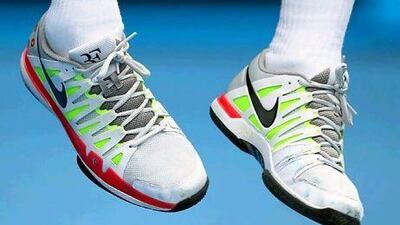For cynics who see sports sponsorship as a corporate freebie or a chief executive's whim, it is worth considering why the industry is in such good shape.
Sponsorship depends to some extent on the health of the sports industry itself. The good news for sport is fans follow their teams and heroes whatever the financial outlook.
According to a report last month by PricewaterhouseCoopers (PwC), the sports industry is expected to grow by 3.7 per cent a year until 2015. This growth is naturally driven by the major global sports properties such as the Fifa World Cup, the Olympic Games, the US National Football League, Formula 1 and the English Premier League.
Sport is a great escape from the trials and tribulations of daily life. The traditional media marketplace has become more diluted in terms of reach. As a result, compelling content that is automatically cross-platform is highly valuable as a marketing tool.
According to PwC's report, sports sponsorship is expected to grow from US$35 billion (Dh128.54bn) in 2010 to $45.3bn by 2015.
When you put social media and the Web into the mix, where marketers are still learning how to engage their brands in the content, sport is perfect as a brand platform.
Why? Look online at the pre- and post-match debates. These were formerly limited to newspapers, coffee shops and bars. Now, sports debates can take place via TV, mobile phones, tablets and PCs worldwide.
This makes sport increasingly attractive for brands and businesses. Sport is passion, and passion sells.
That is the key, though. Sports sponsorship is a business tool. Jonathan Jensen, a professor at Columbia College Chicago, made an interesting point in a recent survey of 50 of the leading US corporations covering 2005 to 2010: "super sponsors", as he terms them, such as AT&T, Coca-Cola, McDonald's, Nike and Visa, outperformed their peers in net income growth, growth in earnings and stock market appreciation. Prof Jensen's conclusion was that these companies were being proactive by investing in their brands and businesses, rather than resting on their brand and corporate laurels.
Similar growth of sponsorship is expected in the Middle East. However, this is driven by the region's major sponsors such as Emirates Airline, Etihad Airways and Dubai Duty Free plus the government-backed tourism platforms including The Race to Dubai in golf, Formula 1 in Abu Dhabi and Qatar's 2022 Fifa World Cup. But the reality here is Qatar is the only country in the region on the front foot, although Abu Dhabi and Dubai are consolidating.
In the region, the sports industry has four main sponsorship challenges.
First, while patronage is the purest form of corporate social responsibility, it can also lead to great yet naive expectations.
Secondly, the gatekeepers of marketing budgets in the region - the marketing agencies - need to embrace sponsorship. Their counterparts in the rest of the world are buying sponsorship agencies and expertise. In the region, that generally does not happen..
Thirdly, many great international brands are managed by retailers interested in using the international brand equity and sales, not developing the local brand potential. As a result, they spend marketing budgets on retailer promotions, not sponsorship. As competition increases and brands demand more commercial returns, it will be interesting to see whether this changes.
Finally, smaller rights holders need to become more creative. They need to engage fans and brands.
Perhaps the key for the sponsorship industry here is using sports' built-in corporate social responsibility platforms: children and their dreams. Any 8-year-old in Al Ain, Bahrain, Dubai or Doha wants to be his or her sporting idol. Providing or facilitating grass-roots sports facilities and opportunity is as useful as any donation to charity.
The current global economic malaise will undoubtedly bring a cull of the bad and ugly in sports marketing - leaving the good and great to survive.
Jamie Cunningham is the founder and chief executive of Professional Sports Group

